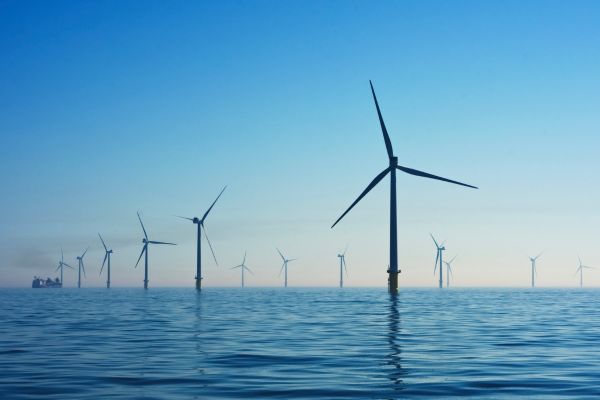
- Details
- By Kaili Berg
The federal Bureau of Ocean Energy Management (BOEM) released two draft Wind Energy Areas (WEAs) off the Oregon coast for the development of offshore wind energy. The Confederated Tribes of the Coos, Lower Umpqua, and Siuslaw Indians are concerned.
The tribe believes that the release of WEAs was premature and threatens fisheries, local fishing jobs, and some of Oregon’s pristine ocean viewsheds, some of which are sacred to the Tribe, according to a press release.
“The Tribe supports any green economic development project that follows the law and does not harm local fishing jobs, our environment, or Tribal cultural resources,” Tribal Council Chair Brad Kneaper said in a press release. “We cannot support offshore wind development until we are provided assurance that it will do good and not harm the Tribe, its members, and the greater community.”
The WEA’s draft covers approximately 219,568 acres offshore of southern Oregon with their closest points ranging from approximately 18 to 32 miles off the coast, according to BOEM.
The Tribe raised a number of concerns to BOEM about wind energy development. These comments include areas of ocean views excluded from the wind areas, along with areas critical to resident and migratory wildlife and fishing.
“Last week, BOEM shared its initial visual impacts assessment that demonstrates that the blades and lights from these facilities could be seen from important places along the coast both during the day and at night. This is not acceptable to the Tribe,” Kneaper said in a statement from the Confederated Tribes of Coos.
According to the Oregon Department of Wildlife, commercial fishing generated an estimated $558 million in income for the statewide economy in 2019, which is equivalent to 9,200 jobs.
Fishing is an important industry on the coast that employs tribal members and supports tribal business. Fish, including salmon, are also an important cultural and subsistence resource to the Tribe. Any impact to fish from wind development could harm local jobs and the tribe according to the statement.
The Tribe has called the coast their home since Time Immemorial. The Tribe's beliefs, traditional practices, fishing, first foods and relations are interconnected and influenced by all that is encompassed in the greater ocean. The tribe consistently advocates that any projects, on land or offshore, avoid impacts on sites of traditional and religious significance to the tribe according to a statement.
“The Tribe remains open to working with the BOEM to resolve the issues raised in our
Comments,” Kneaper said. “We plan to provide comments to BOEM on the WEAs, to provide testimony at the public hearings, and to coordinate with our local and state partners to address our concerns.”
More Stories Like This
Gwich'in Tribal Governments Submit Comments Challenging Fish and Wildlife Service's Inadequate Environmental Review of Arctic Refuge Snow RoadRappahannock Tribe Challenges 9M-Gallon Water Plan
Feds release draft long-term plans for Colorado River management
Apache Leader Walks 60 Miles to Court Hearing That Will Decide Fate of Sacred Oak Flat
Rappahannock Tribe Raises Sovereignty and Environmental Concerns Over Caroline County Water Permit
Help us defend tribal sovereignty.
At Native News Online, our mission is rooted in telling the stories that strengthen sovereignty and uplift Indigenous voices — not just at year’s end, but every single day.
Because of your generosity last year, we were able to keep our reporters on the ground in tribal communities, at national gatherings and in the halls of Congress — covering the issues that matter most to Indian Country: sovereignty, culture, education, health and economic opportunity.
That support sustained us through a tough year in 2025. Now, as we look to the year ahead, we need your help right now to ensure warrior journalism remains strong — reporting that defends tribal sovereignty, amplifies Native truth, and holds power accountable.
 The stakes couldn't be higher. Your support keeps Native voices heard, Native stories told and Native sovereignty defended.
The stakes couldn't be higher. Your support keeps Native voices heard, Native stories told and Native sovereignty defended.
Stand with Warrior Journalism today.
Levi Rickert (Potawatomi), Editor & Publisher


